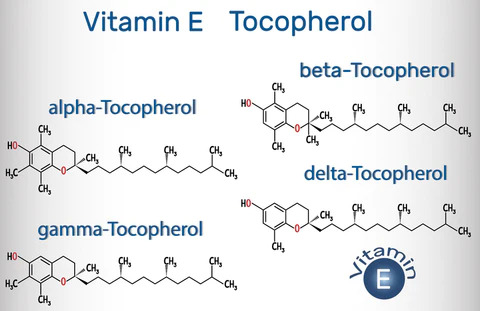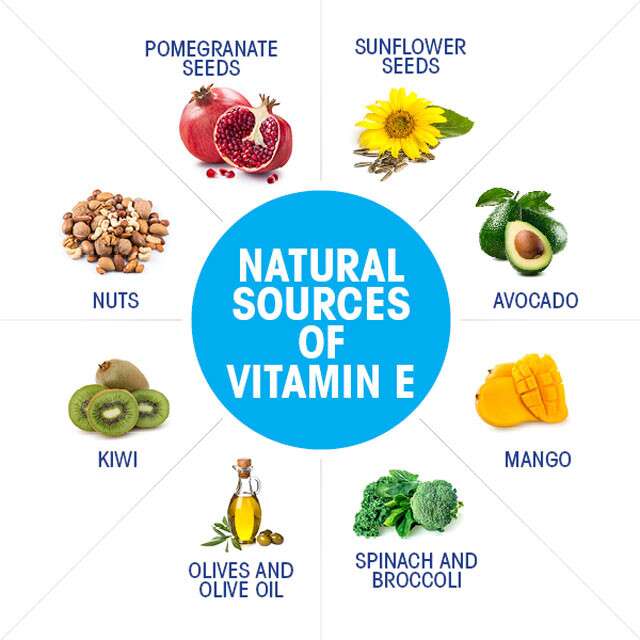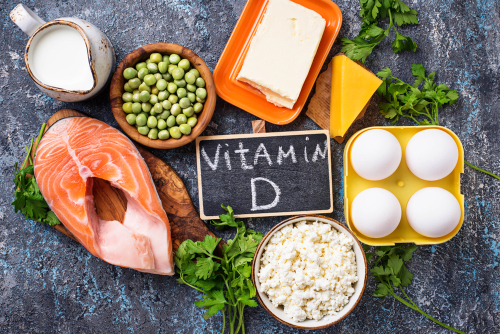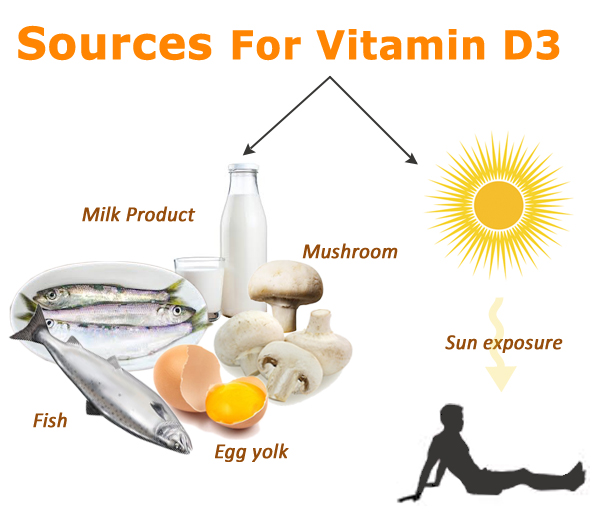How much Vitamin E do our body need daily?
What is Vitamin E?

Vitamin E is a collective term used to describe a nutrient that is necessary to perform several tasks and functions in a human body. It is a fat soluble compound that comes in several forms but a human body only consumes Alpha tocopherol form.
Vitamin E is important to maintain and improve the blood quality, reproduction, vision, and health of several organs of your body such as the brain, skin, etc. The main role of this nutrient in the human body is to hunt down free radicals or prevent the production of such free radicals that can damage several cells.
Natural forms Vitamin E

Naturally, there are 8 forms of vitamin E available in chemical form namely:
- Alpha tocopherol,
- Beta tocopherol,
- Gamma tocopherol,
- Delta tocopherol,
- Alpha tocotrienol,
- Beta tocotrienol,
- Gamma tocotrienol,
- and Delta tocotrienol.
Out of all these naturally occurring chemical forms of vitamin E, a human body consumed only Alpha tocopherol which is considered as the most important one.
Natural source of vitamin E

Vitamin E is a kind of nutrient that is available for certain percentage in a number of food product that with an appropriate quantity such as:
- medium size tomato 5% DV,
- broccoli 8% Dv,
- 1/2 cup boiled spinach 13% DV,
- Nuts such as peanut, hazelnuts, 1 oz almonds 45% DV,
- vegetable oils such as sunflower, soybean oil, safflowers, wheat germ,
- corn,
- fruits juices,
- equipped breakfast cereals,
- fruits such as mango 5% DV,
- kiwi 7% DV, etc. (DV stands for Daily Value)
Daily requirement of Vitamin E for an individual
Vitamin E is a kind of nutrient whose necessary amount is usually consumed by an individual in their daily meal. However, the amount of this nutrient varies with respect to the age group and condition of a human body.
- Toddlers between 1-3 years old need 6mg or 9UI of vitamin E nutrient per day.
- Children between 4-8 years old need 7mg or 10.4UI of nutrients per day.
- For children between 9-13 years of age, ideally 11mg or 16.4 UI per day is recommended.
- Talking about adults, 15mg or 22.4Ui amount of nutrient is required daily.
- Also, pregnant women need 15 mg whereas breastfeeding women need 19 mg of vitamin E per day.
REFERENCES:
- https://medlineplus.gov/ency/article/002406.htm
- https://www.healthline.com/health/all-about-vitamin-e
- https://www.webmd.com/diet/supplement-guide-vitamin-e#1
- https://www.ncbi.nlm.nih.gov/pmc/articles/PMC3997530/
- https://labs.selfdecode.com/blog/vitamin-e-deficiency/
- https://www.sciencedirect.com/topics/agricultural-and-biological-sciences/vitamin-e-deficiency
For more details, kindly visit below:


